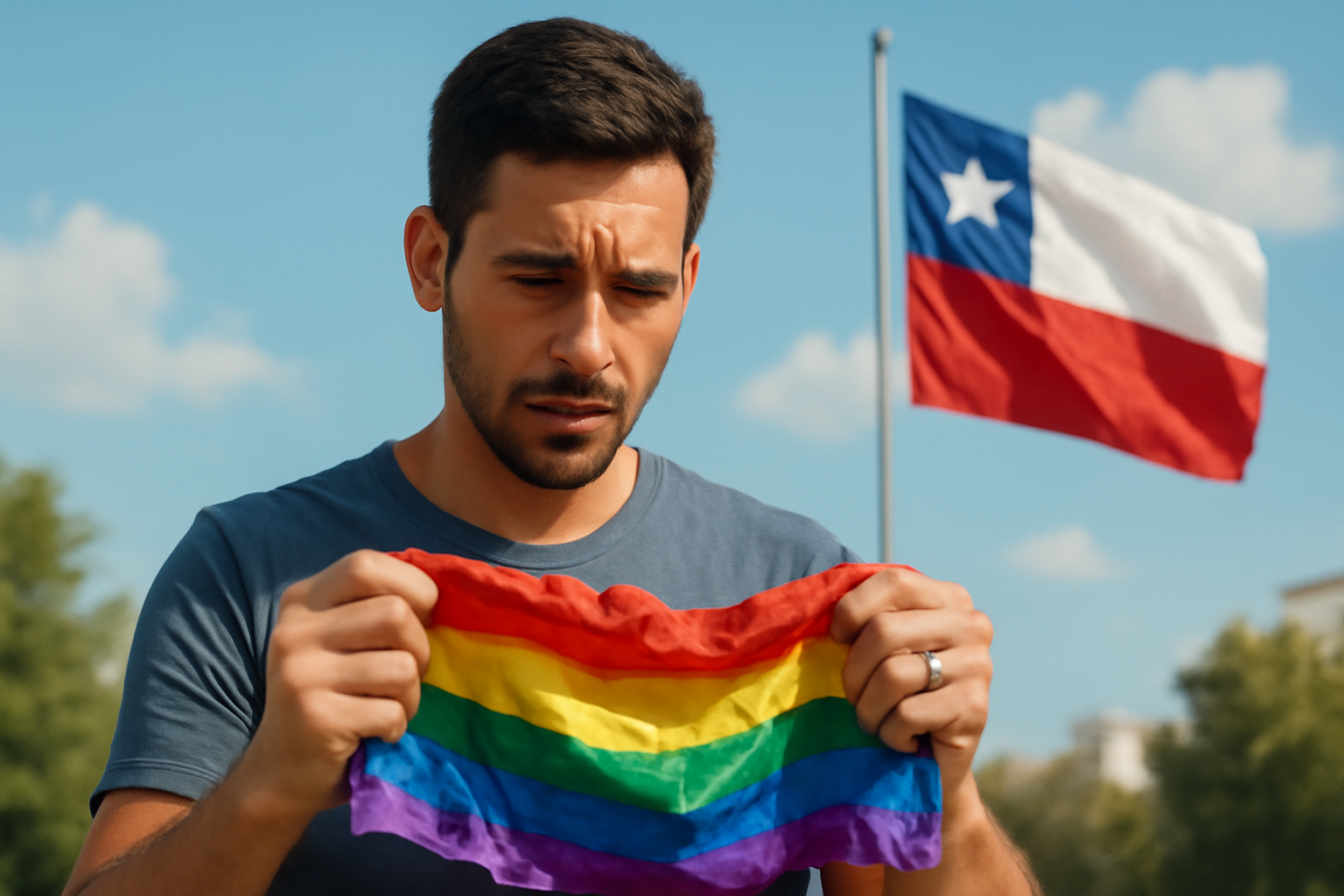
A Year Marked by Regression
A report released by a Chilean advocacy group has revealed that 2024 was a year marked by significant setbacks for LGBTQ rights in Chile. The Movement for Homosexual Integration and Liberation (Movilh) published its 23rd Sexual and Gender Diversity Human Rights report, highlighting a troubling trend of regression in LGBTQ rights across the country.
According to the report, 2024 saw a halt in the progress of LGBTQ rights, with notable rollbacks observed in the legislative, executive, and judicial branches of government. This marks the first time since the return of democracy in Chile in 1990 that LGBTQ rights have faced such a decline.
A Surge in Human Rights Violations
The Movilh report describes 2024 as "the year of regression," noting that 23.5% of human rights violations against LGBTQ individuals over the last two decades occurred in this year alone. In 2024, a total of 2,847 discrimination complaints were reported, representing a staggering 78.7% increase compared to the previous year.
The report documents two murders, 44 instances of physical or verbal assaults, two incidents of violence occurring within police stations, 89 cases of workplace abuse, and 65 incidents in educational settings. Particularly concerning is the sharp increase in discrimination cases affecting the transgender community, which rose by 462.6% compared to 2023.
Influence of Extremist Narratives
One of the key factors driving the deterioration of LGBTQ rights in Chile, according to the report, is the growing influence of ultra-right narratives that have fostered an environment of hate speech. The advocacy group criticizes authorities for their silence in the face of these attacks, despite claims of supporting the LGBTQ community.
The report takes a critical stance against the actions of the Executive Branch. It highlights the prohibition of public funds for hormone treatments for transgender minors and the postponement of these medical procedures in public hospitals. Although the government eventually reversed these decisions due to intense public pressure and judicial appeals, the initial actions had already caused considerable harm.
Judicial Challenges
The judiciary has also been criticized in the report. A particularly troubling case involved the Oral Criminal Trial Court of San Antonio, which refused to classify the murder of a transgender woman as a femicide, citing her identity card's gender marker that still reflected her birth-assigned gender. Additionally, the Court of Appeals of Santiago ordered the removal of a homophobia complaint from social media, a move that NGOs warn sets a dangerous precedent for freedom of speech.
A Violent Pride Parade
Further evidence of the regression in LGBTQ rights was seen during the annual Pride parade in the Chilean capital on June 29, 2024, when participants were attacked by a group of hooded men. This incident underscores the heightened risks faced by the LGBTQ community in public spaces.
Regional Disparities in Discrimination
The report also highlights regional disparities in discrimination cases, with Valparaíso, Metropolitana, and Biobío being the regions with the highest number of complaints at 51.3%, 25.1%, and 5.8% respectively. Cases of discrimination increased in 11 of Chile’s 16 regions, with the Ñuble region experiencing a dramatic 300% increase in reported cases.
Advocacy Efforts Intensified
In response to this bleak panorama, advocacy groups have intensified their efforts to combat violence and discrimination and to demand the restoration of LGBTQ rights. Movilh, along with other organizations, has approached international bodies such as the Inter-American Commission on Human Rights and the United Nations to bring attention to the situation in Chile.
“We are witnessing a dangerous reversal of rights that took decades of struggle to achieve,” the report warns. “If the State does not take urgent action, there is a risk of institutionalizing discrimination and violence against LGBTQ individuals.”
The report serves as a stark reminder of the ongoing challenges faced by the LGBTQ community in Chile and underscores the need for renewed efforts to secure and protect their rights.
Related Posts
Triumphant Trans Woman Wins Legal Battle and Inspires Others to Stand Up for Their Rights
Breaking new ground: a landmark victory in transgender rights After battling in courtrooms and enduring endless challenges, Diana Portillo, a transgender woman, has secured a monumental victory in her decade-long fight against workplace discrimination. The result? Nearly $1 million awarded in a historic settlement. But this isn't just a win on paper—it represents a powerful precedent in combati [...]
Pride Month in Latin America: Protests and Demands for Equality
**Celebrating Pride and advocating LGBTQ+ rights in Latin America** Pride Month in Latin America was a lively mix where celebration met activism. Communities united, not just throwing a party but making a stand—demanding equality and pushing governments toward better protection and rights recognition. Throughout Latin America, pride events erupted in marches and cultural displays, each with a c [...]
Transgender Erasure Actions Implemented by National Park Service
```html Trump administration's impact on national park service and transgender recognition The Trump administration made notable moves in undermining transgender representation, which included directing agencies like National Park Service not include "T" and "Q" when they refered “LGBTQ” in any official communication. This move seems part a broader plan by this administration aimed at reducin [...]